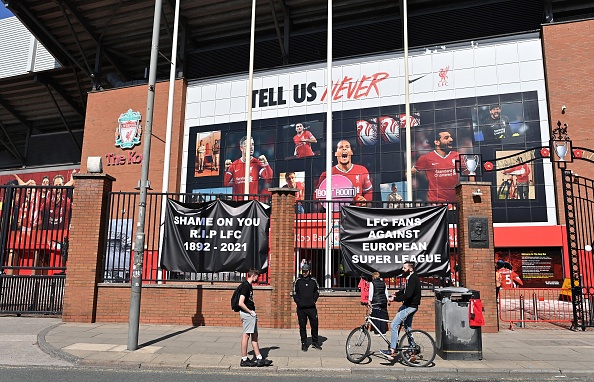ECJ ruling on Super League ‘opens door’ to Gulf and US private equity

This week’s ruling on the European Super League by the European Court of Justice (ECJ) opens the door to economic and political opportunity from Gulf states and the US, according to a top geopolitics professor.
The judgment deemed some of the rules used by Uefa and Fifa to block the creation of the European Super League as unlawful due to its anti-competition stance.
Professor Simon Chadwick states that this opens the door to non-European parties to take a piece of the European club football cake, which Fifa have tried to dilute with their new Club World Cup commencing in 2025.
“Today’s announcement is reminiscent of the Bosman ruling in 1995 and it seems likely to have a similarly transformative effect for European football,”, Chadwick, Professor of Sport and Geopolitical Economy at Skema Business School in Paris, told City A.M.
“Fundamentally, EU law has again reaffirmed for us that football is seen as being an industrial sector hence it is subject to the application of the same principles as in every other industry.
“Consequently, this threatens existing systems of governance in sport and significantly limits the power of any institutions (such as UEFA or FIFA) to prevent the development of, for instance, a super league. This opens the door to those who have the economic and political will to establish such a league, which may include the likes of Gulf state and US private equity investors.”
Some have suggested that the decision is not as bad as some fear for the likes of Uefa and Fifa with the political will to drastically change the European club structure no longer there after fan backlash.
But clubs still have power to change that.
“The irony for European football is that, in seeking to uphold free movement principles, the EU’s Court of Justice has just ruled in a way that may result in beneficiaries of the ruling not actually being European,” Chadwick adds.
“Whatever the outcome, today’s ruling means that talk of a Super League is not going away anytime soon, and its possible formation will be an ‘elephant in the room’ for years to come. Power has shifted considerably towards Europe’s bigger clubs, the coming decade is therefore likely to be a hugely turbulent one for European football.